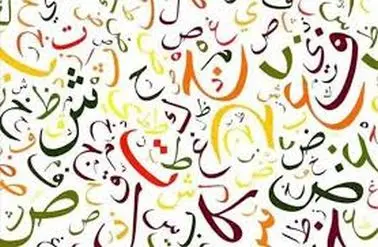By: Ayaan Saroori
In several states across India, growing efforts have emerged to preserve mother tongues from the threat of extinction. This is a silent crisis that demands greater support at individual, political, organizational, and community levels. In many regions, the teaching of mother tongues—along with their foundational primers or ‘Qaidas’—has been abandoned, causing significant harm to linguistic and cultural heritage.
Similarly, in the Union Territory of Jammu and Kashmir, multiple languages are facing the risk of fading into obscurity. In the Chenab Valley, where languages like Kashmiri, Urdu, Kishtwari, Bhaderwahi, Sirazi, Bhallesi, and others are still spoken, several local dialects such as Bhaderwahi, Kishtwari, and Sirazi are especially endangered. These less-spoken languages urgently require revival efforts before they vanish completely.
The Chenab Times Foundation has been advocating for the preservation of mother tongues that fall under the broad Chenabi identity—languages such as Bhadarwahi, Kishtwari, Sirazi, and others. As part of their language‑revival effort, the foundation has called for these tongues to be introduced in schools, ideally from kindergarten onward. Region‑wide, safeguarding our linguistic heritage is essential: it not only shapes our collective identity but also carries forward the legacy of our ancestors.
Across the Union Territory, mother tongues vary widely—many people speak Kashmiri, Dogri, Gojri, Urdu, or Hindi, while others converse in Sirazi, Bhadarwahi, Kishtwari, and additional local dialects. Unfortunately, some of these lesser‑spoken languages are gradually disappearing. While Kashmiri, Dogri, and Gojri remain relatively in use as everyday mediums of communication, languages such as Bhadarwahi, Kishtwari, and Sirazi urgently need focused preservation and revitalization before they fade further.
Kashmiri language: A Young Kashmiri’s Perspective on the loss of Mother Tongue
While interviewing and discussing the issue with a 17-year-old Kashmiri youth—who chose to remain anonymous—I came across several alarming concerns that need urgent attention. Languages are deeply embedded in our culture and environment, and both family and friends play a significant role in shaping our cultural boundaries. Unfortunately, the Kashmiri language is being marginalized by many, as a growing number of parents discourage their children from speaking their mother tongue, especially in public or social settings.
Why don’t you speak Kashmiri, since it’s your mother tongue?
I don’t have much exposure to the Kashmiri language. Whenever I try to speak it, my Urdu accent becomes awkward, so I avoid speaking Kashmiri at home. However, I do understand it well.
Do your parents allow you to speak Kashmiri?
No, they don’t allow me to speak Kashmiri at family gatherings or in front of relatives. There’s a widespread mindset that children who speak Kashmiri are “Chapri” (a term used to imply backwardness or lack of class). Sadly, both parents and society contribute to this stigma. While they could play a key role in preserving the language, their attitude has instead led to its steady decline.
What is your personal preference—Kashmiri, Urdu, or English?
Urdu is generally considered the language of formal education, while English is associated with success, intelligence, and global opportunities. This makes Kashmiri seem “less useful” to families like mine. Many people, especially in urban areas, associate speaking Kashmiri with being “uneducated” or “rural.” As a result, parents often discourage its use in order to appear modern or elite.
While discussing the decline of other regional dialects, such as Kishtwari, we realized the pressing need to include such languages in educational curricula. Moreover, translating important literary works into these dialects could help spark interest among the youth. The same approach should be applied to other fading dialects across the region.
“Alongside introducing academic courses in the Kishtwari language, we must engage local intellectuals to translate important books into our mother tongue. Additionally, the regional government should establish a team of linguists to safeguard these languages from extinction,” said Burhan Ahmed Mir, a local from Kishtwar, during our discussion.
In conclusion, we have increasingly sidelined the value and cultural depth of our mother tongues. Reviving these languages is not something that can be achieved on an individual level. It requires the collective involvement of both the regional government and society at large to ensure these rich linguistic heritages are preserved and passed on to future generations.
Ayaan Saroori is a freelance writer and columnist.




